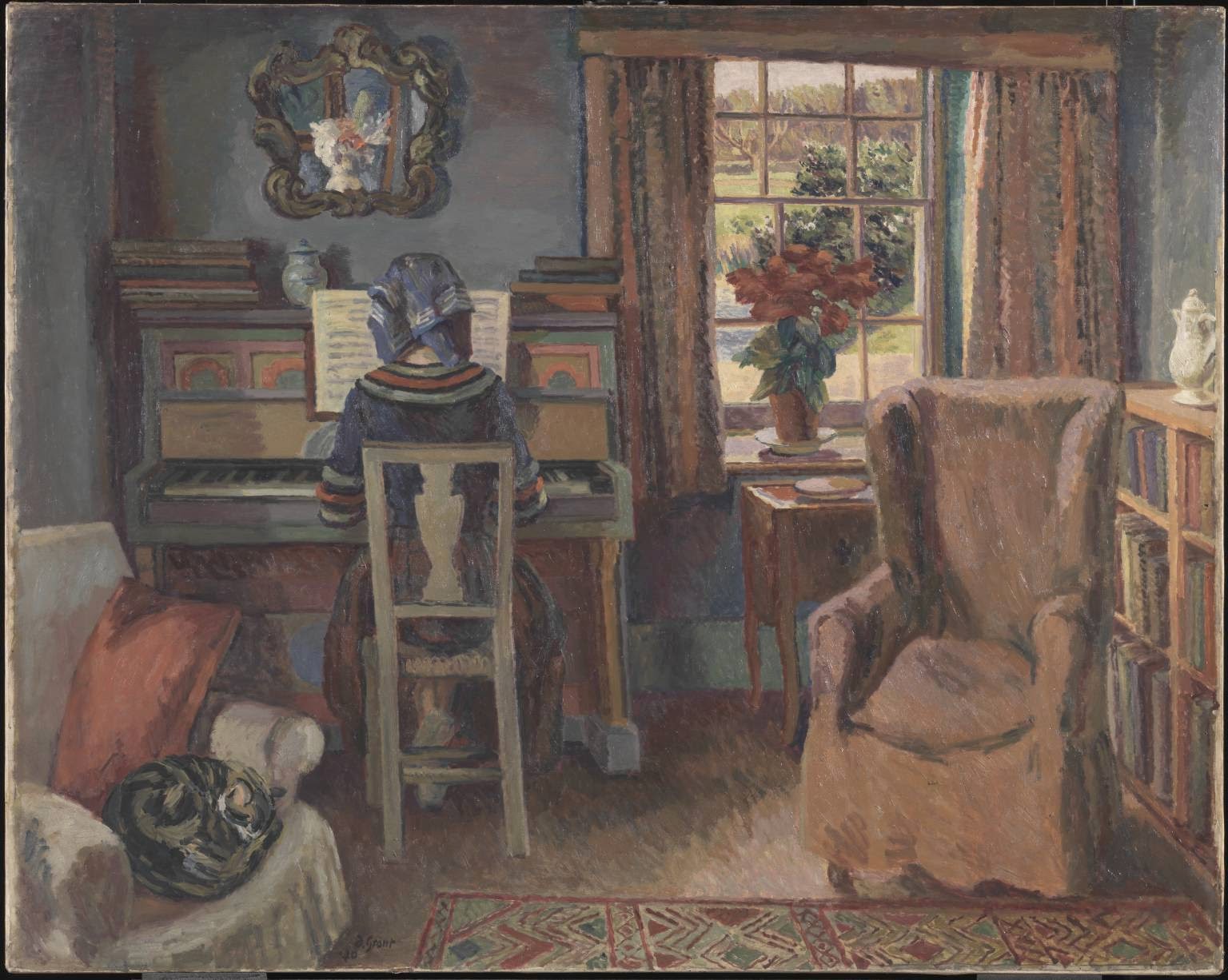Here, then, is Philip Larkin's thrush in near-Spring. Of course, that other Larkin (the one we know and love) makes an appearance as well.
Coming
On longer evenings,
Light, chill and yellow,
Bathes the serene
Foreheads of houses.
A thrush sings,
Laurel-surrounded
In the deep bare garden,
Its fresh-peeled voice
Astonishing the brickwork.
It will be spring soon,
It will be spring soon --
And I, whose childhood
Is a forgotten boredom,
Feel like a child
Who comes on a scene
Of adult reconciling,
And can understand nothing
But the unusual laughter,
And starts to be happy.
Philip Larkin, The Less Deceived (1955).
This poem encapsulates the genius of Larkin: beauty and human truth side-by-side. First, a lovely lyrical passage (which sounds vaguely like something a poet of the Nineties (e.g., Arthur Symons or Ernest Dowson) might have written). Next, a beautiful turning point: "It will be spring soon,/It will be bring soon." A "nature poet" would stop there. But not Larkin, because what makes him unique is his interest in human beings, and how they make their way through the world. This statement goes against the commonly-accepted caricature of Larkin, I know. But it is true.
I suspect that most of us have come upon the type of scene described by Larkin in the second half of the poem. We know exactly how that experience feels, even if we cannot put it into words. Larkin's poetry is full of shared human experiences that we often find difficult to put into words.
But here is where Larkin's genius lies: he takes this shared human feeling and links it to the feeling of hearing the first thrush of Spring. In the yellow light of evening. In a still-bare garden. From that link, the poem folds inward and unfolds outward, and the two scenes -- and the emotions associated with each -- play off each other endlessly. This movement occurs time and time again in Larkin's poetry.
James McIntosh Patrick, "A City Garden" (1940)
Now, seemingly a world away from Larkin (but not really), here is Gerard Manley Hopkins.
Spring
Nothing is so beautiful as Spring --
When weeds, in wheels, shoot long and lovely and lush;
Thrush's eggs look little low heavens, and thrush
Through the echoing timber does so rinse and wring
The ear, it strikes like lightnings to hear him sing;
The glassy peartree leaves and blooms, they brush
The descending blue; that blue is all in a rush
With richness; the racing lambs too have fair their fling.
What is all this juice and all this joy?
A strain of the earth's sweet being in the beginning
In Eden garden. -- Have, get, before it cloy,
Before it cloud, Christ, lord, and sour with sinning,
Innocent mind and Mayday in girl and boy,
Most, O maid's child, thy choice and worthy the winning.
Gerard Manley Hopkins, in W. H. Gardner and N. H. MacKenzie (editors), The Poems of Gerard Manley Hopkins (Oxford University Press, Fourth Edition, 1967).
It has been suggested that Ivor Gurney was influenced by Hopkins's poetry. On the evidence of this sonnet, I would agree: the onrush of words and images and the slightly odd syntax are very similar in both poets. For just one example, compare "Spring" with Gurney's "The Cloud."
James McIntosh Patrick, "Springtime in Eskdale" (1935)
"Thrush's eggs look little low heavens" is beautiful. Andrew Young makes a strikingly similar comparison in a lovely poem which has appeared here previously.
The Nest
Four blue stones in this thrush's nest
I leave, content to make the best
Of turquoise, lapis lazuli
Or for that matter of the whole blue sky.
Andrew Young, Collected Poems (Rupert Hart-Davis 1960).
James McIntosh Patrick, "Glamis Village" (1939)

































